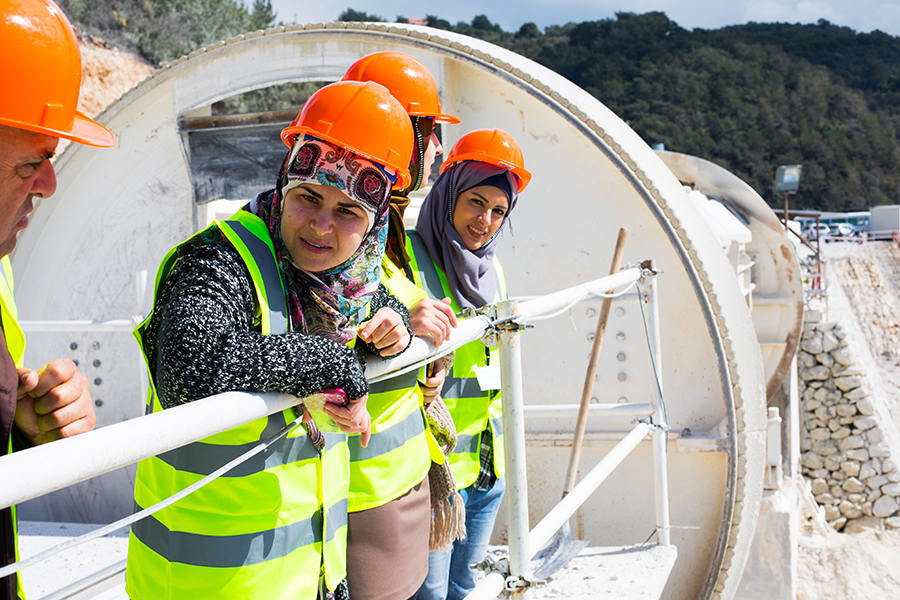Lebanon—Water Project (LWP)
Client: U.S. Agency for International Development
Duration: 2015-2021
Region: Middle East and North Africa
Country: Lebanon
Solutions: Environment
The Lebanon Water Project (LWP) increased reliable and sustainable access to water for Lebanese citizens, improved water management practices, enhanced the efficiency and sustainability of the public water utilities, and responded to water issues arising from the influx of Syrian refugees. We promoted better water governance as a means to assure the long-term protection of Lebanon’s water resources. In implementing the program, we prioritized sustainability—environmental, financial, and social—and engagement with the private sector and municipalities to ensure widespread buy-in for change.
LWP built on the successes of the Lebanon Waste and Wastewater Sector Support project that ran from 2009 to 2015.

Sample Activities
- Review and strengthen the planning and internal operations management of water utilities.
- Design and support completion of baseline regional customer satisfaction surveys.
- Build sustainable partnerships between public water institutions, local communities, and the private sector that address improved service delivery, water conservation technologies, and water usage awareness.
Select Results
- Introduced fully automated systems for financial management, billing, and collection to improve work processes and control measures.
- Installed around 35,000 water meters and procured handheld billing devices for water utilities, which will improve bill collection.
- Promoted the use of water-saving drip irrigation systems and hydroponics systems through partnerships between the private sector and farmers that resulted in a 35 percent decrease in water consumption for irrigation that was reallocated for domestic use.
- Supported the Association of Lebanese Industrialists to introduce water-saving and recycling technologies in nine stone-cutting factories resulting in a 90 percent decrease in freshwater use, $700,000 annual savings in water fees, and reduced pollution in the Litani River Basin.
- Rehabilitated two constructed wetlands ensuring low-cost sewage treatment for more than 3,000 citizens in rural areas in the Bekaa and South Lebanon.
- Supported more than 400 teachers in 13 schools to incorporate water conservation subjects into elementary and middle school curricula, engaging around 575 students in water conservation and protection projects, and developed a series of educational videos to promote water conservation.
- Supported Lebanese water utilities with water infrastructure works valued at around $22 million in Jezzine (South Lebanon), Koura (North Lebanon), Metn (Mount Lebanon), and West Bekaa (Bekaa).
- Invested $800,000 to build a solar-powered pumping station, part of an effort to improve water service delivery in communities experiencing an influx of Syrian refugees. The pumping station saves the Bekaa Water Establishment $60,000 a year in fuel costs and provides 21,000 Ghazzeh residents with 24-hour water service.
Featured Links
RELATED CONTENT:
Worldwide—Climate Finance Accelerator 2 (CFA 2)
The Climate Finance Accelerator 2 (CFA 2) is the second phase of a technical assistance program that brings together project proponents, investors, and policy makers to increase flows of climate finance.
Read More